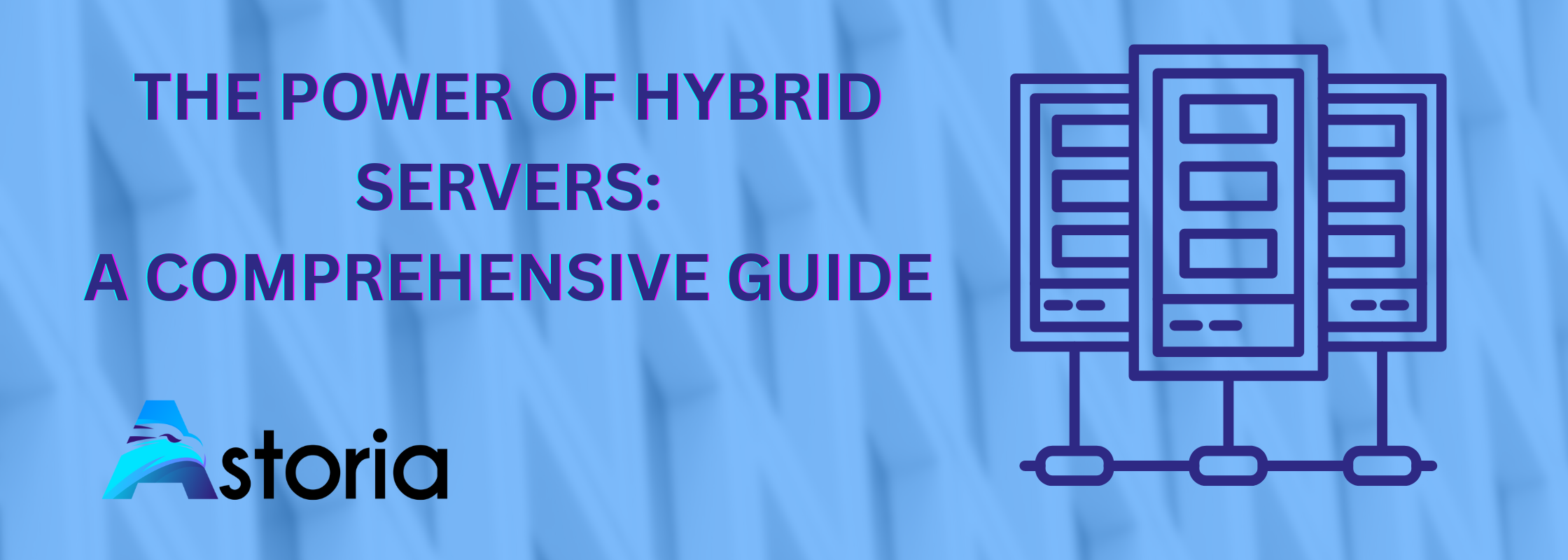In today’s rapidly evolving technological landscape, businesses are constantly seeking ways to optimize their operations and stay ahead of the competition. One of the key considerations for any business is the use of servers, the backbone of modern computing. In this comprehensive guide, we will delve into the world of servers and explore the power of hybrid solutions. We will uncover the benefits and implications of hybrid servers, and shed light on their potential impact on businesses of all sizes.
The Value of Hybrid Servers
Disaster Recovery and Continuity
“Disaster recovery is the ability to instantly come back from a disaster, which is why it’s called disaster recovery. So the ability to, if your server were to be lost in a fire, in a flood, to be able to spin that device up in the cloud.”
Mathew Schleef, Director of IT Operations at Astoria
One of the primary advantages of hybrid servers is their ability to provide robust disaster recovery and continuity solutions. In the event of a physical server failure or a natural disaster, having a backup server in the cloud ensures that businesses can quickly resume operations without significant downtime. This level of resilience and rapid recovery is invaluable in today’s fast-paced business environment.
Security and Control
“Sometimes it’s a lot faster and more secure to have your own servers that you own rather than having servers only on a cloud system. So servers in the cloud are very similar, but a lot of times companies will buy servers in-house to have more security, quicker connection to it, and they won’t have to rely on another company to manage their stuff.”
Mathew Schleef, Director of IT Operations at Astoria
Security is a top concern for businesses in the digital age. Hybrid servers offer the best of both worlds – the security and control of an on-premises server, coupled with the flexibility and scalability of the cloud. By keeping sensitive data closer to their chests, businesses can mitigate the risks associated with relying solely on cloud-based vendors. This hybrid approach allows for greater customization and the ability to tailor security measures to specific business needs.
Elasticity and Scalability
“Hybrid is almost infinite. You’re able to grow easier and utilize new resources without having to go out and get expensive hardware without having to… It’s a simple as, ‘Oh, I need to increase the storage.”
Mathew Schleef, Director of IT Operations at Astoria
The ability to scale and adapt to changing business needs is crucial for long-term success. Hybrid servers offer unparalleled elasticity, allowing businesses to seamlessly expand their storage and computing capabilities as required. With a few button clicks, businesses can increase storage, add new applications, or accommodate growing workloads. This flexibility eliminates the need for costly hardware upgrades and ensures that businesses can keep pace with evolving demands.
Implications and Potential Impact
The adoption of hybrid servers has far-reaching implications for businesses across industries. By leveraging the power of hybrid solutions, businesses can unlock a range of benefits that directly impact their bottom line.
Cost Savings and Efficiency
“I believe that we’re getting into a day and age where your common individual needs an MSP or needs… It’s going to go up there with the list of first responders, you know, where with technology being so ingrained into everything, you have to have somebody who knows it.”
Mathew Schleef, Director of IT Operations at Astoria
By investing in hybrid servers, businesses can streamline their operations and reduce the costs associated with managing their own infrastructure. With the expertise of a Managed Service Provider (MSP), businesses can offload the burden of server management and focus on their core competencies. This not only improves efficiency but also ensures that businesses have access to the latest technologies and best practices.
Future-Proofing and Adaptability
“If you’re big enough that you have a server, it really helps to have somebody who knows how to run that stuff so that you’re not muddling through it because you can easily omit something that should be there or just leave a gaping hole open for somebody to come in and just wreak havoc.”
Mathew Schleef, Director of IT Operations at Astoria
As technology continues to evolve at a rapid pace, businesses must future-proof their infrastructure to remain competitive. Hybrid servers offer the adaptability and scalability required to keep pace with emerging technologies and changing business needs. By partnering with an MSP and leveraging hybrid solutions, businesses can ensure that their infrastructure is robust, secure, and capable of supporting future growth.
Conclusion and Future Outlook
The power of hybrid servers cannot be overstated. By combining the security and control of on-premises servers with the flexibility and scalability of the cloud, businesses can unlock a range of benefits. From disaster recovery and continuity to enhanced security and cost savings, hybrid servers offer a comprehensive solution for businesses of all sizes.
As technology continues to advance, the adoption of hybrid servers is poised to become the norm rather than the exception. Businesses that embrace this hybrid approach will gain a competitive edge, enabling them to adapt to changing market dynamics and deliver exceptional customer experiences.
In conclusion, the future of servers lies in the hybrid model. By harnessing the power of both on-premises infrastructure and the cloud, businesses can achieve unparalleled resilience, security, and scalability. The time to embrace hybrid servers is now – a decision that will undoubtedly shape the future success of businesses in the digital age.


